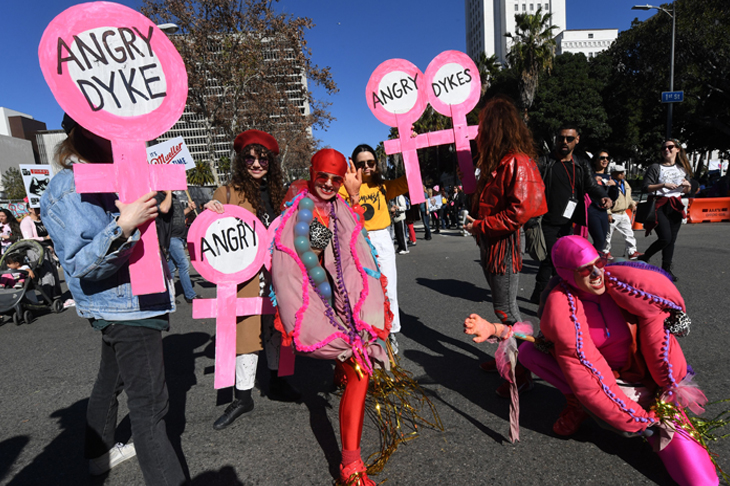The Dyson Heydon scandal has created a serious crisis for the High Court. A crisis is of its own making that has its origin in the Court’s unprecedented decision to deal with complaints made against former Justice Heydon last year by way of establishing an administrative inquiry into the allegations. The High Court has never established such an inquiry before and was unwise to do so.
The inquiry made findings against Heydon – who refused to participate in its deliberations – and these findings were glowingly endorsed in a ‘Statement by the Hon. Susan Kiefel AC, Chief Justice of the High Court of Australia’ issued last week.
The High Court was under no obligation to establish an inquiry. If Chief Justice Kiefel thought it necessary she could have asked the Morrison government to establish one. The High Court is not just another government department. It is the supreme judicial body in Australia and its legitimacy depends upon it being seen to be completely above politics.
After the release of the Chief Justice’s statement, a media firestorm understandably broke loose. As a result, Heydon’s reputation has been irretrievably and permanently destroyed and the High Court now bears primary responsibility for this. The solicitors for some of the complainants have stated that they intend to bring civil proceedings against Heydon and the Commonwealth.
The Attorney-General, Christian Porter, responded to the foreshadowed civil proceedings by pointing out the Commonwealth was not an appropriate defendant. That is so – the correct defendant would be the High Court, as constituted by the individual judges at the relevant times. The Director of the ACT DPP has referred the matter to the AFP for consideration as to whether criminal proceedings should be commenced against Heydon. Late last week the Fairfax press reported that the High Court had subsequently written to some one hundred former associates of the Court seeking details of sexual harassment they may have suffered whilst employed by the Court. It is not clear why this was done, or whether a further wide-ranging inquiry, perhaps into former judges other than Heydon, is underway. Whatever transpires in relation to any legal proceedings brought against Heydon, the High Court’s actions have created a serious crisis for the Court. For a number of reasons.
First, it will he held responsible for all the consequences which flow from the Heydon affair. Second, the Court cannot possibly sit on any appeal brought in respect of any civil or criminal proceedings involving Heydon. This constitutes an abdication of jurisdiction by the Court which is completely unwarranted. Third, the High Court’s actions in relation to Heydon have opened up the possibility of former and current judges of the Court being sued as well as having their reputations destroyed. This can only create legal chaos, and seriously diminish the standing and reputation of the High Court itself and the legal system in general. Fourth, the High Court has now irreversibly entered the realm of political controversy.
As Owen Dixon, Australia’s greatest jurist, never tired of pointing out, judges in order to preserve the legitimacy and authority of the Court and the entire legal system must be seen to be completely above politics. That is why Dixon refused to allow High Court judges to act as Royal Commissioners. Yet the current High Court has established its own administrative inquiry and endorsed its findings in a highly charged political context.
The High Court and the #MeToo movement make a strange pairing, given the movement’s contempt for the legal system and principles of individual rights and due process. Furthermore, the #MeToo movement’s primary aim is not justice for alleged victims, but rather the annihilation of alleged transgressors and anyone associated with them. The movement has already dragged former High Court judges Gleeson and McHugh and NSW Supreme Court judge Parker into the scandal. More former and current judges will no doubt be implicated, and their reputations tarnished as the attack on Heydon inevitably gathers pace and widens.
In aligning itself with the #MeToo movement, the High Court has also bound itself to the outcome of any legal proceedings brought against Heydon. This is a particularly dangerous position to be in. As a number of media organisations who have enthusiastically embraced the #MeToo cause have found out to their cost, #MeToo cases very often fail in court.
If readers think that the views expressed above are fanciful, I invite them to read an article by Pru Goward titled ‘Mr Heydon, the High Court’s judgment is a moral one’ published recently in the Sydney Morning Herald.
Ms Goward is a #MeToo champion of substance, and no radical leftie. She is a former Sex Discrimination Commissioner and minister in a NSW Liberal government. She heartily approves of the fact that ‘the full bench of Australia’s supreme law making body’ has delivered a ‘moral judgment’ – a hitherto unknown function of the Court. Ms Goward criticises Heydon for disputing the inquiry findings and pontificates that, ‘The justices of the High Court must be fuming with rage at this undermining of their authority and integrity by one of their former colleagues. On behalf of democracy, so should we be fuming’. And the great defender of democracy, and apparent intimate of the now fuming High Court judges, does not stop there. She goes on to belittle Heydon’s solicitors, who did nothing more than issue a statement on their client’s behalf after the Chief Justice issued her statement. Goward describes them as ‘little known’, which is simply not true. She then says: ‘Maybe they don’t expect to appear much before the High Court over the next 10 or 20 years and get a win’.
The unequivocal suggestion here is that the now morally charged High Court will rule against Heydon’s lawyers in any case in which they act before the High Court for the next 20 years. What a wonderful endorsement of the judicial integrity of the High Court by an enthusiastic supporter of its newly discovered moral activism. With friends like Ms Goward, the High Court doesn’t need any enemies.
No doubt the current High Court judges will be horrified by Ms Goward’s appalling slur on them – but the High Court cannot say so. That, of course, is precisely why the Court should never have placed itself in the position that it now finds itself in.
The High Court has foolishly sown the wind, and unfortunately it will now have to reap the whirlwind.
Got something to add? Join the discussion and comment below.
Get 10 issues for just $10
Subscribe to The Spectator Australia today for the next 10 magazine issues, plus full online access, for just $10.
You might disagree with half of it, but you’ll enjoy reading all of it. Try your first month for free, then just $2 a week for the remainder of your first year.














Comments
Don't miss out
Join the conversation with other Spectator Australia readers. Subscribe to leave a comment.
SUBSCRIBEAlready a subscriber? Log in